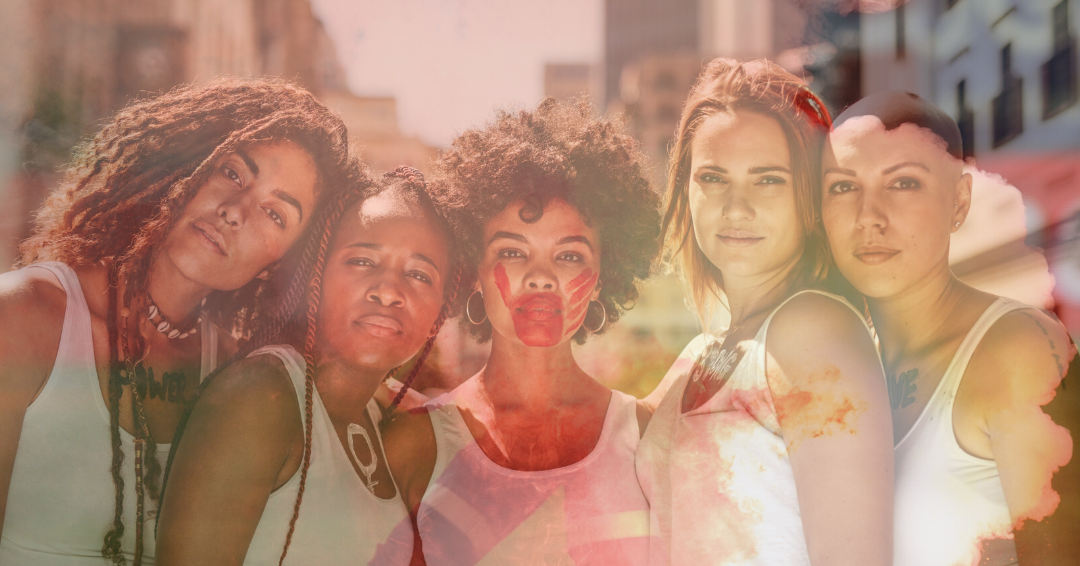
The national lockdown has had a severe impact on Gender Based Violence related cases in South Africa.
"Pandemics compound existing gender inequalities and vulnerabilities, increasing risks of abuse. In times of crisis such as the COVID19, women and girls are at higher risk, for example, of intimate partner violence and other forms of domestic violence due to heightened tensions in the household. They also face increased risks of other forms of gender- based violence including sexual exploitation and abuse in these situations." - Ms. Beatrice Mutali, UNFPA Representative.
Worldwide, a number of countries including as France, Northern Ireland and others have recorded up to 33% increase in GBV related cases. Different countries around the world have been met with an increased demand for shelters and places of safety for victims of violence.
In South Africa, Police Minister Bheki Cele announced that the South African Police Service (SAPS) received a total of 2320 GBV related cases in just the first week of the lockdown at the of March. According to media sources, this is higher than the weekly average of domestic violence cases reported the previous year. Sadly, these statistics come as no shock as South Africa is the rape capital of the world where GBV cases are already high.
The national Gender-Based Violence Command Centre said the number of calls had tripled during the lockdown period. With the ban of alcohol sales lifted, a further upsurge in GBV related cases can already be seen as expected, indicating a clear need for GBV support. One of the ways to assist in reducing domestic violence during the lockdown is for SAPS to enhance its availability in high-risk areas and quicker responses to cases reported. South Africans can also reported cases of violence via the Community Constituency Covid-19 Front's web application, Thusa Sechaba on www.thusasechaba.org.za. This will connect them to local NGOs who offer support to victims of violence, especially domestic and intimate partner violence.
Rape culture amongst young people
South Africa has a toxic rape culture and records the highest rates of rape and femicide globally. According to the latest statistics, Statistics South Africa reports that one in five South African adult women have experienced physical violence. This figure rises to one third in poorer communities. The same report found that young women are particularly vulnerable to GBV, with almost a quarter of 18 to 24-year-olds reporting that they had been physically abused by an intimate partner in the last year. Rape culture thrives in South Africa, deeply anchored in a complex system of patriarchy tied to cultural norms and gendered power dynamics, which create a social context that normalizes and approves of sexual violence. Victim blaming, the liberty with which perpetrators operate and the protection they are afforded by an ailing judicial system that continually fails victims, all threaten the ability to end this scourge. Furthermore, the trivial manner which rape and sexual assault are treated on social media platforms speaks to a global social problem.
Young women missing
In the last three years South Africa has seen over 4000 women reported missing, 80% of which were Black women. Statistics revealed that most of the cases involved women under 30, and there was a high incidence of cases involving 18-year-olds. Within just a few days into June, we are seeing daily headlines with young women missing and most of them being found murdered in the most gruesome ways.
Sexual assault in universities and schools
South African university students across the country have taken to the streets several times to raise awareness about violence against women on South African university campuses. Dr. Siphokazi Magadla, a politics professor at Rhodes University in South Africa who has done extensive research on gender-related topics says part of the reason is that many universities have no formal sexual violence protocols to follow.
Sexual violence remains rife in South African campuses because of a culture steeped in patriarchy and because little to no support is offered to survivors of rape. Most sexual assault cases at institutions of higher learning go unreported because sexual violence is normalized and survivors are often not believed. South African universities have a long way to go in combatting gender-based violence.
At the moment, women who choose to report instances of sexual misconduct in universities are likely to be met with not much aside from further suffering.
Get in touch with us:
This email address is being protected from spambots. You need JavaScript enabled to view it.









